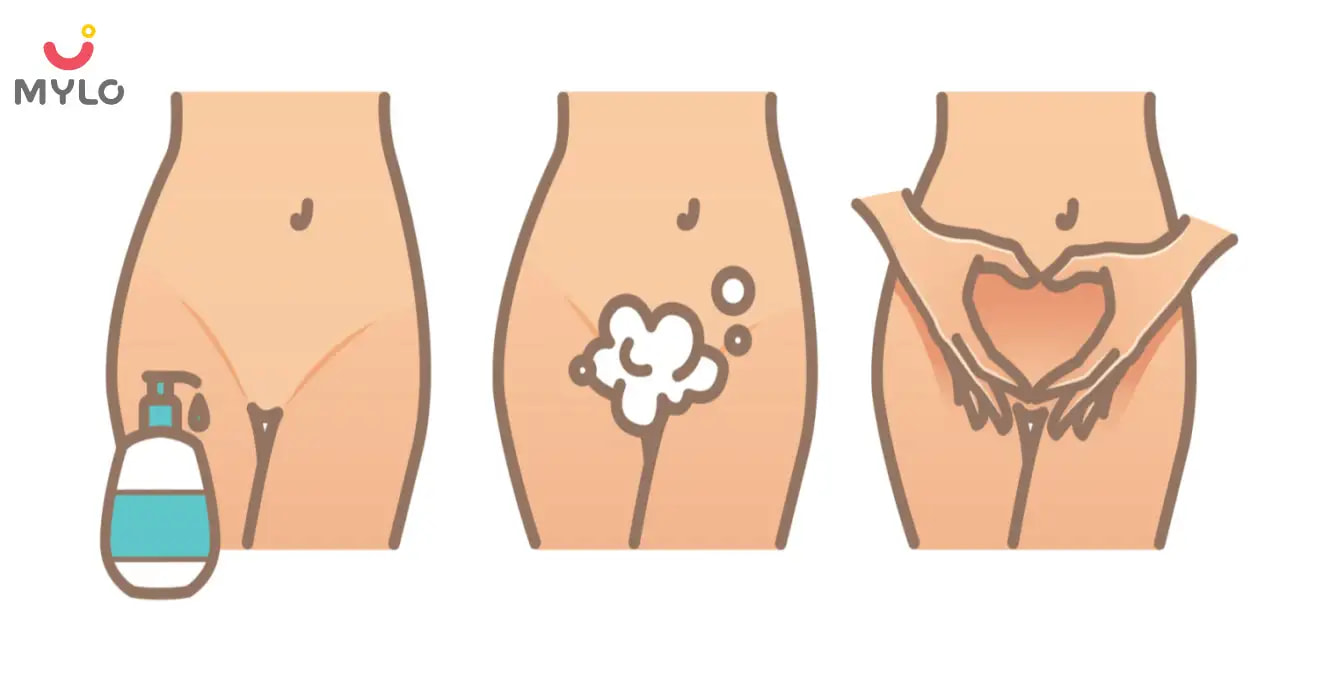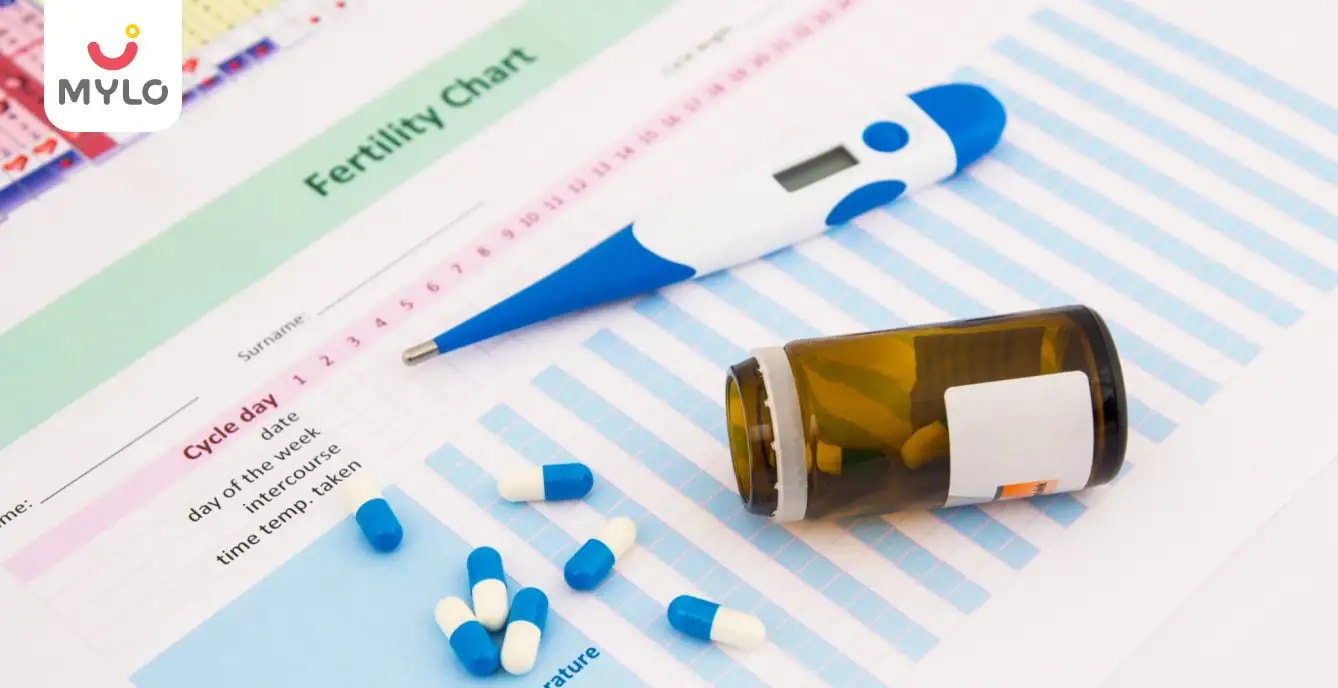Home

Hydroxyprogesterone Injection During Pregnancy: What You Need to Know
In this Article

Miscarriage
Hydroxyprogesterone Injection During Pregnancy: What You Need to Know
Updated on 3 November 2023
Pregnancy is an exciting time for women, but it can also be a time of uncertainty and worry. Many women are uncertain about what treatments are safe to use during their pregnancy, and one such treatment is hydroxyprogesterone injection. It's important for women to understand what hydroxyprogesterone injection is, the benefits and risks of using it during pregnancy, how it is administered, and possible alternatives. In this article, we will explore all of these topics to help women make informed decisions about their pregnancy care.
What is Hydroxyprogesterone Injection?
Hydroxyprogesterone injection is a synthetic form of progesterone, a hormone produced naturally by the body. It is most commonly given in the form of an intramuscular injection, and is typically given between weeks 16 and 20 of pregnancy. It is used to reduce the risk of preterm labor and preterm birth in women who are at higher risk for such complications.
Hydroxyprogesterone injection is a form of progesterone that is given in a single injection, rather than a series of injections. It is sometimes referred to as hydroxyprogesterone caproate, or simply “17P”. It is an FDA-approved treatment for women at risk for preterm labor and preterm birth.
How is the Injection Administered?
Hydroxyprogesterone injection is typically given as an intramuscular injection. This means that it is given directly into the muscle, usually in the buttock or thigh. The injection is typically given once per week, for a total of 17 weeks.
It is important to note that hydroxyprogesterone injection should only be given by a healthcare provider who is experienced in administering the injection. It is also important to follow all of your healthcare provider’s instructions for the injection, including any pre-injection preparation or post-injection care.
Benefits of Hydroxyprogesterone Injection During Pregnancy
Here are some of the benefits of hydroxyprogesterone injection during pregnancy:
1. Reduces risk of premature birth
Hydroxyprogesterone injection during pregnancy has been shown to reduce the risk of preterm labor and preterm birth in women who are at higher risk for such complications. It is believed to work by stimulating the production of progesterone, which helps to prepare the uterus for delivery and reduce the risk of preterm labor.
2. Reduces risk of miscarriage
In addition to reducing the risk of preterm labor and preterm birth, hydroxyprogesterone injection has also been shown to reduce the risk of miscarriage in women at higher risk for such complications.
3. Reduces need of cesarean section
It has also been associated with a decrease in the need for cesarean sections, as well as a decrease in the need for labor induction.
4. Improves pregnancy outcomes
Finally, hydroxyprogesterone injection has been shown to improve the outcomes of pregnancies for women with a history of preterm labor or birth. Studies have found that the use of hydroxyprogesterone injection is associated with a decreased risk of delivering a baby that is too small for gestational age, as well as a decreased risk of neonatal death.
Side Effects of Hydroxyprogesterone Injection During Pregnancy
While hydroxyprogesterone injection is generally considered safe and effective, there are some potential risks associated with its use during pregnancy. The most common side effects include nausea, vomiting, headache, and fatigue. These side effects are usually mild and do not require medical attention.
In rare cases, hydroxyprogesterone injection may cause more serious side effects, such as depression, anxiety, and vision problems. If you experience any of these side effects, it is important to contact your healthcare provider right away.
It is also important to note that hydroxyprogesterone injection is not recommended for women who have a history of depression or anxiety, as it may worsen these conditions. Additionally, it is important to talk to your healthcare provider about any other medications you are taking, as some medications may interact negatively with hydroxyprogesterone injection.
Possible Complications of Hydroxyprogesterone Injection During Pregnancy
In addition to the potential side effects described above, there are also some potential complications associated with the use of hydroxyprogesterone injection during pregnancy. These include an increased risk of infection and an increased risk of bleeding.
It is important to note that hydroxyprogesterone injection is not recommended for women who have a history of infection or bleeding, as it may worsen these conditions. Additionally, it is important to talk to your healthcare provider about any other medications you are taking, as some medications may interact negatively with hydroxyprogesterone injection.
When is Hydroxyprogesterone Injection Given During Pregnancy?
Hydroxyprogesterone injection is typically given between weeks 16 and 20 of pregnancy. It is most commonly given to women who are at higher risk for preterm labor or miscarriage. These women may include those with a history of preterm labor or preterm birth, or those who are carrying multiple babies.
It is important to note that hydroxyprogesterone injection is not recommended for all pregnant women, and should only be given to those who are at higher risk for preterm labor or miscarriage. If you are unsure if you are at higher risk, it is important to talk to your healthcare provider about your individual risk factors.
Alternatives to Hydroxyprogesterone Injection During Pregnancy
For women who are at a higher risk of preterm labor or miscarriage, there are some alternatives to hydroxyprogesterone injection that may be used during pregnancy. These include progesterone supplements, vaginal progesterone suppositories, and progesterone-releasing intrauterine devices (IUDs).
Progesterone supplements are available in the form of oral tablets, capsules, and gel. These supplements can be taken orally, or the gel can be applied to the skin. Progesterone suppositories are also available, and are inserted vaginally. Finally, progesterone-releasing IUDs can be inserted into the uterus to provide a continuous release of progesterone.
It is important to note that these alternatives are not as effective as hydroxyprogesterone injection in reducing the risk of preterm labor and preterm birth, and should only be used if hydroxyprogesterone injection is not an option. Additionally, it is important to talk to your healthcare provider before starting any of these treatments, as they may interact with other medications you are taking.
You may like : Do All Women Require Folic Acid & Progesterone Tablets After A Positive Pregnancy Test Result?
Conclusion
If you are considering hydroxyprogesterone injection during pregnancy, it is important to talk to your healthcare provider about your risk factors, the potential benefits and risks, and any alternatives that may be available. By understanding all of the information and making an informed decision, you can make sure you are getting the best care for you and your baby.



Written by
Anupama Chadha
Anupama Chadha, born and raised in Delhi is a content writer who has written extensively for industries such as HR, Healthcare, Finance, Retail and Tech.
Read MoreGet baby's diet chart, and growth tips

Related Articles
RECENTLY PUBLISHED ARTICLES
our most recent articles

Diet & Nutrition
গর্ভাবস্থায় আলুবোখরা: উপকারিতা ও ঝুঁকি | Prunes During Pregnancy: Benefits & Risks in Bengali

Diet & Nutrition
গর্ভাবস্থায় হিং | ঝুঁকি, সুবিধা এবং অন্যান্য চিকিৎসা | Hing During Pregnancy | Risks, Benefits & Other Treatments in Bengali

Women Specific Issues
স্তনের উপর সাদা দাগ: লক্ষণ, কারণ এবং চিকিৎসা | White Spots on Nipple: Causes, Symptoms, and Treatments in Bengali

Diet & Nutrition
গর্ভাবস্থায় পোহা: উপকারিতা, ধরণ এবং রেসিপি | Poha During Pregnancy: Benefits, Types & Recipes in Bengali

Diet & Nutrition
গর্ভাবস্থায় মাছ: উপকারিতা এবং ঝুঁকি | Fish In Pregnancy: Benefits and Risks in Bengali

Diet & Nutrition
গর্ভাবস্থায় রেড ওয়াইন: পার্শ্ব প্রতিক্রিয়া এবং নির্দেশিকা | Red Wine During Pregnancy: Side Effects & Guidelines in Bengali
- ইনার থাই চ্যাফিং: কারণ, উপসর্গ এবং চিকিৎসা | Inner Thigh Chafing: Causes, Symptoms & Treatment in Bengali
- গর্ভাবস্থায় ব্রাউন রাইস: উপকারিতা ও সতর্কতা | Brown Rice During Pregnancy: Benefits & Precautions in Bengali
- Velamentous Cord Insertion - Precautions, Results & Safety
- Unlock the Secret to Flawless Skin: 7 Must-Have Qualities in a Face Serum
- Unlock the Secret to Radiant Skin: How Vitamin C Serum Can Transform Your Complexion
- Gender No Bar: 10 Reasons Why Everyone Needs a Body Lotion
- Unlock the Secret to Radiant Skin How to Choose the Perfect Body Lotion for Your Skin Type
- Top 10 Reasons to Apply a Body Lotion After Every Bath
- Communication in Toddlers: Milestones & Activities
- How to Improve Vocabulary for Toddlers?
- A Comprehensive Guide to Understanding Placenta Accreta
- Vulvovaginitis in Toddlers Causes, Symptoms and Treatment
- A Comprehensive Guide to Understanding Cerebral Palsy in Children
- Bitter Taste in Mouth During Pregnancy: Understanding the Causes and Remedies


AWARDS AND RECOGNITION

Mylo wins Forbes D2C Disruptor award

Mylo wins The Economic Times Promising Brands 2022
AS SEEN IN

- Mylo Care: Effective and science-backed personal care and wellness solutions for a joyful you.
- Mylo Baby: Science-backed, gentle and effective personal care & hygiene range for your little one.
- Mylo Community: Trusted and empathetic community of 10mn+ parents and experts.
Product Categories
baby carrier | baby soap | baby wipes | stretch marks cream | baby cream | baby shampoo | baby massage oil | baby hair oil | stretch marks oil | baby body wash | baby powder | baby lotion | diaper rash cream | newborn diapers | teether | baby kajal | baby diapers | cloth diapers |








